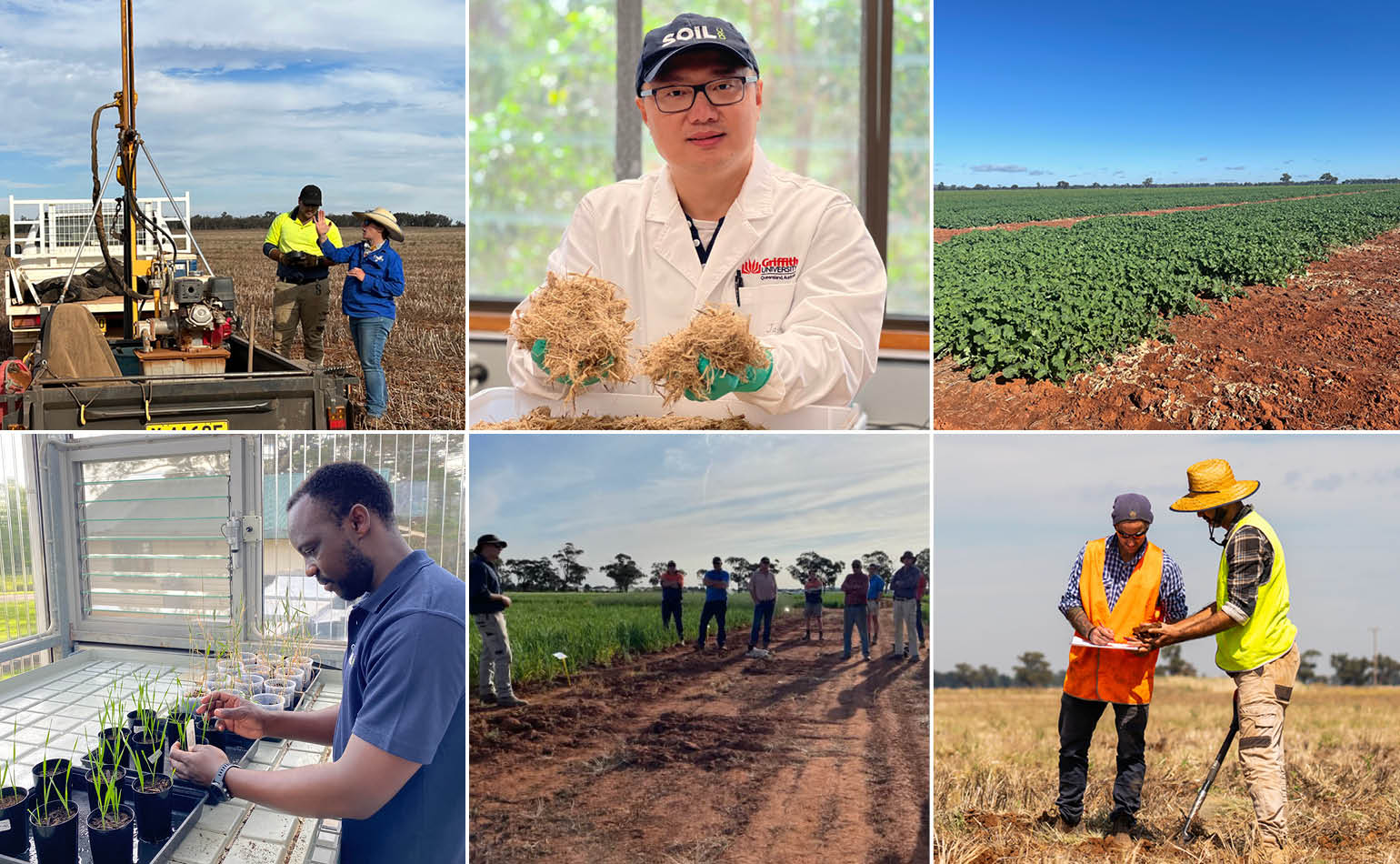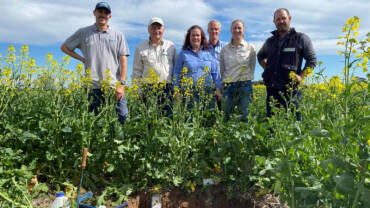Program spotlight: New products for soil fertility and function
| Posted May 13,2024Farmers currently have access to a limited range of products to manage complex soil constraints like soil acidity, alkalinity and salinity. Program 3 of the Soil CRC is focussed on increasing this product range by developing new fertilisers, amendments and delivery mechanisms to enhance soil fertility and function.
Program Leader Professor Megh Mallavarapu from the University of Newcastle said these products are harnessing emerging technologies – such as polymers, nanotechnology and biotechnology – and using innovative ways to mine nutrients from waste streams.
“Program 3 is bringing together seven grower groups, six universities, and three industry partners to develop solutions that will enhance soil performance and productivity for agricultural practitioners,” Professor Mallavarapu said.
The program now has ten active projects and six completed projects, with ten current PhD students and five PhD completions.
“Our researchers have made significant contributions to the field, with the successful synthesis of micro-lime and micro-gypsum products, along with the creation of innovative biochars and microbial carrier products,” he said.
“One project has demonstrated the positive impact of biosolid application on soil health, which carries implications for sustainable agricultural practices and environmental conservation.
“Another project conducted metadata analysis and mapping studies to provide insights into organic and clay amendments, resulting in improvements to sandy soils. This achievement has positive implications for enhancing soil fertility.”
A few studies are dedicated to extracting high-grade fertilisers, particularly phosphorous, from waste streams. Professor Mallavarapu said the successful synthesis of novel biochar from waste streams reinforces the Program’s commitment to resource recovery for potential application as fertiliser, to reduce the reliance on chemical fertilisers.
Program 3’s other recent achievements include the synthesis of biochar-nanocomposites with remarkable phosphorous absorption capacity. These formulations hold promise as potent phosphorous fertilisers for agricultural crops.
Our researchers are conducting ongoing experiments involving field trials to explore the value of ‘nutrient balanced’ manures as phosphorous fertilisers for plant growth and productivity. This research also investigates the influence of raw versus treated manures on both plant growth and organic matter degradation.
“We’re also progressing the development of new amendments aimed at enhancing soil structure,” Professor Mallavarapu said. “Nanostructured lime and gypsum prototype products have been synthesised, and their superior reactivity, dissolution rates, and mobility into subsoil have been established.”
“Additionally, surface application of nano-lime and nano-gypsum has demonstrated substantial potential for addressing subsoil acidity and sodicity respectively, with higher use efficiency and a reduction in application rate of up to 25%.”
The Program’s innovations extend to moisture retention and alternative microbial carrier products designed for rhizobia. These advancements hold the promise of enhancing the efficacy of beneficial microbes in the soil, thereby contributing to nitrogen fixation, root disease protection, and symbiotic interactions with plants.
Professor Mallavarapu said he is excited for what comes next. “Over the next three years, we aim to implement all of these innovative products in the field, so that farmers can see and experience the benefits themselves.”
Watch our 2023 Program 3 update
Find out more
Related article: The Fertiliser value of manures
Read more about our Program 3 PhD students:





